
In the digital age, having a website is crucial for any business to establish credibility, reach a wider audience, and drive growth. A well-designed website serves as a powerful marketing tool, offering businesses a platform to showcase their products or services 24/7. It enhances brand visibility and customer engagement while providing valuable insights through analytics. Websites enable seamless communication with customers and allow for convenient online transactions, ultimately boosting sales and revenue.
Moreover, in today’s competitive landscape, having a website for an organization is crucial, as not having one can put a business at a significant disadvantage against competitors who leverage the online presence to attract and retain customers. This article dives into the numerous reasons why websites are essential for businesses, exploring the unique benefits they offer that go beyond simply having an online presence.
Table of Contents
Key Takeaways
- Professionalism Matters: Establish credibility and professionalism by prioritizing a website over relying solely on social media platforms.
- Seize Control: Enjoy complete control over your online presence, branding, and content by owning a website.
- Enhance Customer Experience: Improve customer service and engagement through a well-designed and user-friendly website.
- Competitive Advantage: Gain a competitive edge by having a website that showcases your unique value proposition and offerings.
- Fuel Growth: Utilize websites as a tool for business growth and expansion, reaching new markets and customers.
- Manage with Ease: Simplify website management tasks to ensure your online presence remains effective and up-to-date.
Website vs Social Media
Ownership Concerns
Imagine a business that has spent years building a large following on a social media platform. Suddenly, the platform changes its algorithm, and the business’s reach plummets. This highlights the vulnerability of relying solely on social media.
In contrast, a business that invests in a website has a platform it controls. They can adapt their website to changing trends and user preferences without being beholden to the whims of a social media platform.
By emphasizing website ownership, you can showcase the importance of having a stable and controllable online presence for businesses. You can also establish brand authority and credibility by showcasing your products or services uniquely. Customizing your site according to your business needs enables you to tailor the user experience.

SEO Limitations
Websites help overcome the restrictions of limited online visibility that social media platforms may have. By optimizing your web, you can enhance search engine ranking and reach a broader audience. Strategically utilizing keywords on your website boosts visibility and improves search results.
Let’s say a bakery creates a social media post about their delicious cupcakes. While the post might generate some engagement, it won’t rank well in search results for “best cupcakes in town.” However, a bakery business website with a dedicated page optimized for “best cupcakes” has a much higher chance of appearing at the top of search results, attracting potential customers actively searching for cupcakes.
By highlighting these SEO limitations, you can emphasize how a website empowers businesses to be discoverable through search engines, a crucial aspect of attracting new customers.
Credibility Boost
A professional website design helps build trust with potential customers, providing a sense of legitimacy for your business. Displaying testimonials and client reviews on your site showcases positive experiences from previous clients, enhancing credibility further. Demonstrating expertise through valuable content establishes authority in your industry.
For example, an e-commerce store with a professional website that includes detailed product descriptions, secure payment options, and clear return policies appears far more trustworthy than one that only exists on social media.
Attention Span
Engage visitors with an appealing website layout that captures their interest immediately upon landing on your site. Keeping content concise and visually attractive ensures visitors stay longer on the page, increasing the chances of conversion. Implementing clear call-to-action buttons throughout the website makes navigation seamless for users. This focused and user-friendly experience stands in stark contrast to the constant barrage of information and distractions on social media platforms.
Professionalism through Websites
Customer Journey
Websites empower businesses to orchestrate a seamless customer journey. It provides complete control over the user experience. By offering clear navigation, compelling product descriptions, informative FAQs, and persuasive customer testimonials at each stage of the buying process, businesses can effectively guide users toward conversions. This optimized user experience streamlines the customer journey and significantly boosts conversion rates.
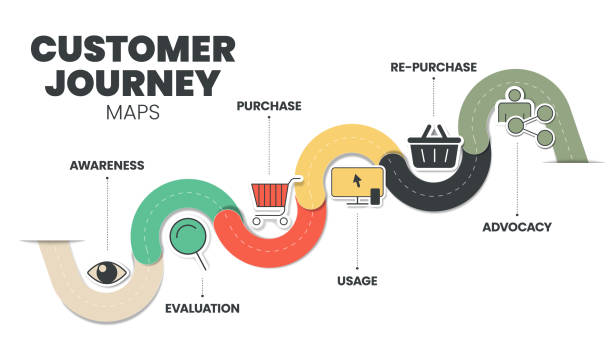
Visibility Increase
Websites help businesses expand their reach to a global audience, breaking geographical barriers. Improving online presence is key, and website accessibility is vital for this purpose. Social media integration further enhances visibility by reaching out to a broader audience.
Local Business Necessity
For local businesses, websites are essential to effectively target local customers. Without a website, local businesses miss out on the opportunity to target customers actively searching for their products or services in the area.
Enhancing local SEO with location-based keywords improves visibility within the community. It helps potential customers searching for nearby products or services discover your business. Listing the business on platforms like Google My Business increases local search visibility and attracts nearby customers.

Benefits of Websites
Offers Social Proof
Websites display social media followers and engagement, portraying a thriving online community. By showcasing client logos and partnerships, businesses establish credibility. Highlighting awards and recognitions further enhances trust among visitors.
For example, a well-designed website could display a dedicated section with before-and-after photos, client testimonials, and positive reviews from platforms like Google My Business or Yelp. This comprehensive approach to social proof builds trust and credibility with potential customers
Lasting Value
Invest in a website as a long-term marketing asset that continually attracts potential customers. Your website acts as a valuable repository for content like blog posts, articles, case studies, and client portfolios. This content becomes an evergreen asset, continuously attracting visitors, educating potential customers, and establishing your expertise over time.
As your website accumulates backlinks and establishes authority, it becomes easier to rank higher in search results for relevant keywords. This drives organic traffic and qualified leads to your website for years to come.

Cost-Effective Solution
Websites offer cost-effective marketing solutions by saving on traditional advertising expenses. Reach a broader audience at a fraction of the cost compared to traditional methods. Analyzing website analytics helps measure ROI, ensuring efficient resource allocation.
Imagine a restaurant relying solely on flyers and newspaper ads to attract customers. These methods can be expensive and have limited reach. In contrast, a well-designed website with a user-friendly online ordering system and an interactive menu can attract customers directly, offering a 24/7 marketing and sales channel. Furthermore, website analytics can reveal valuable data on customer behavior, allowing the restaurant to refine its online marketing strategy and optimize its website for conversions
Online Sales Platform
E-commerce websites empower businesses to establish a direct sales channel, expanding their revenue streams and reaching a wider customer base. It provides direct sales opportunities for a wide range of products, from physical goods to digital downloads and subscriptions. Appointment scheduling, online booking systems, and the ability to accept secure payments online further expand revenue streams. This 24/7 availability offers convenience for both businesses and customers, allowing customers to purchase products or services at their own pace.
Additionally, website analytics provide valuable data on sales performance and customer behavior. These insights enable businesses to optimize their online sales strategy for increased profitability. Even businesses that don’t primarily rely on online sales can benefit from a website. A well-designed website acts as a powerful lead generation tool, capturing inquiries from potential customers who can then be nurtured through other sales channels.
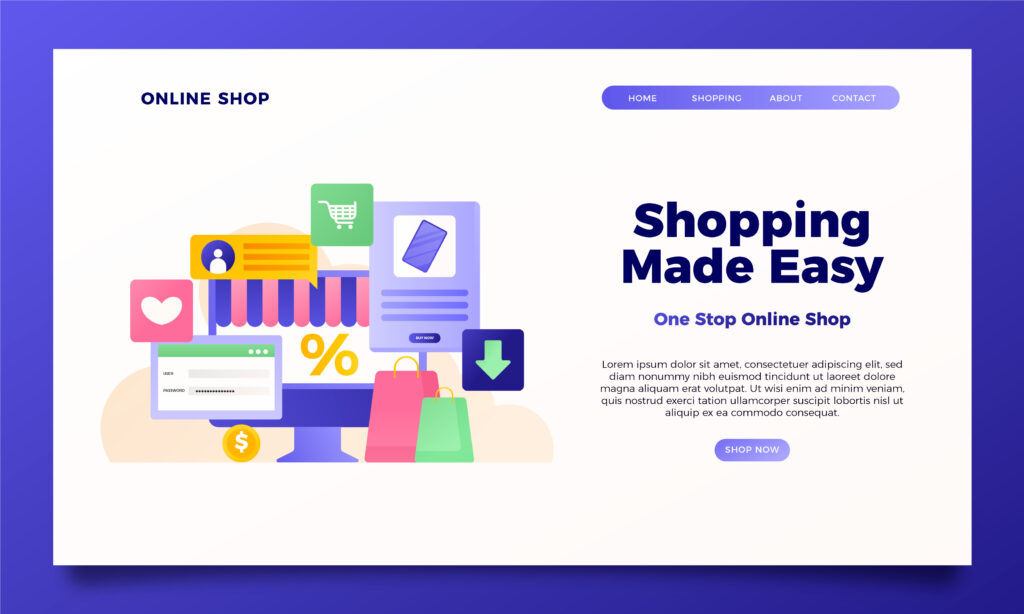
Complete Control
Content Management
Businesses hand in the ability to have complete control over their website’s content. They can easily update and modify the information displayed, ensuring it remains relevant and up-to-date. By having this level of control, companies can promptly respond to market changes or trends.
To enhance user engagement, businesses can organize their content effectively. This includes structuring information logically and implementing a content calendar for consistent updates. Through strategic planning, companies can ensure that their website remains fresh and engaging for visitors.
Design Flexibility
Having control over a website allows businesses to customize its design according to their brand identity. This customization helps in creating a unique online presence that reflects the company’s values and vision accurately. By doing so, businesses can establish a strong brand image among their target audience.
Opting for responsive design is crucial in today’s digital landscape where mobile usage is prevalent. Businesses need to ensure that their websites are compatible with various devices to provide a seamless user experience across different platforms. Incorporating multimedia elements such as images and videos enhances visual appeal and keeps visitors engaged.
User Experience
One of the key aspects of having complete control over a website is being able to prioritize user experience. Businesses should focus on providing intuitive navigation that guides users seamlessly through the site. Clear menus, search functions, and well-organized content contribute to an overall positive browsing experience.
Website speed plays a significant role in user satisfaction. Slow-loading websites frustrate visitors and may lead them to abandon the site altogether. By optimizing loading times through various techniques like image compression and caching, businesses can ensure that users have a smooth browsing experience.
Ensuring mobile responsiveness is essential as more people access websites on their smartphones or tablets while on-the-go. A mobile-friendly website adjusts its layout based on the device screen size, making it easy for users to navigate and interact with the content efficiently.
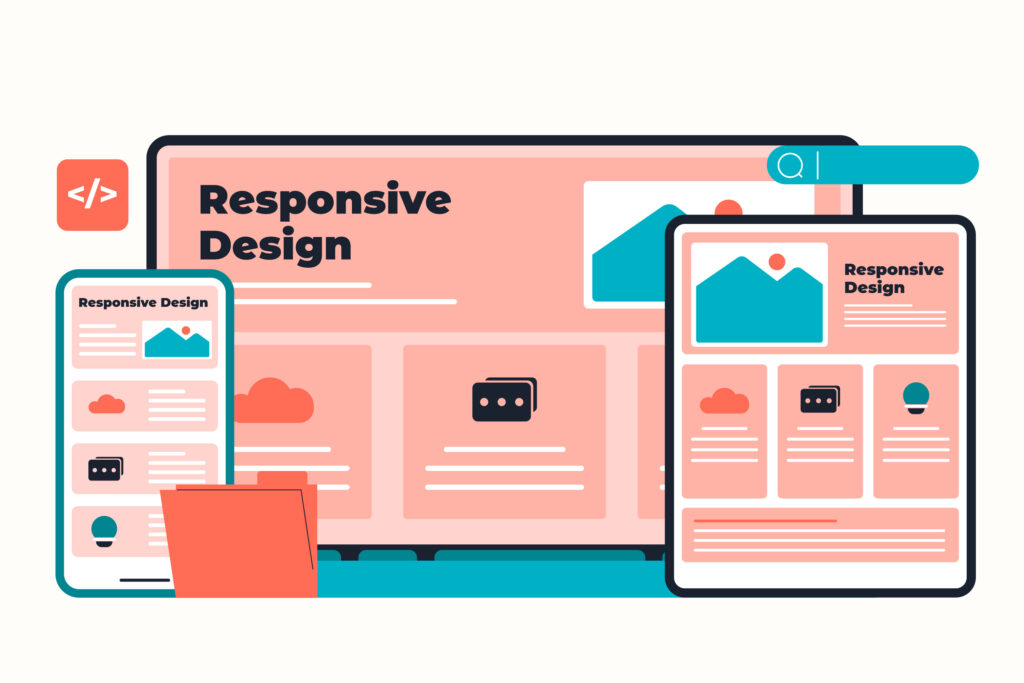
Easy Website Management
Updates Simplicity
Updating a website is crucial for keeping content fresh and engaging for visitors. Utilizing a user-friendly Content Management System (CMS) simplifies the process. By streamlining content updates, businesses can ensure that information is always current. Regular maintenance schedules are essential to maintaining website health and security. This proactive approach helps prevent issues and ensures smooth functionality. Notifying visitors of upcoming changes promotes transparency and keeps them informed about any modifications.
Integration Ease
Integrating third-party tools into a website enhances its functionality and user experience. Tools like customer relationship management systems or e-commerce platforms can be seamlessly integrated for added features. Connecting social media platforms to websites allows for cross-promotion, expanding reach and engagement with audiences across different channels. Syncing email marketing tools with websites creates a cohesive digital strategy, ensuring consistent branding and messaging across all platforms.
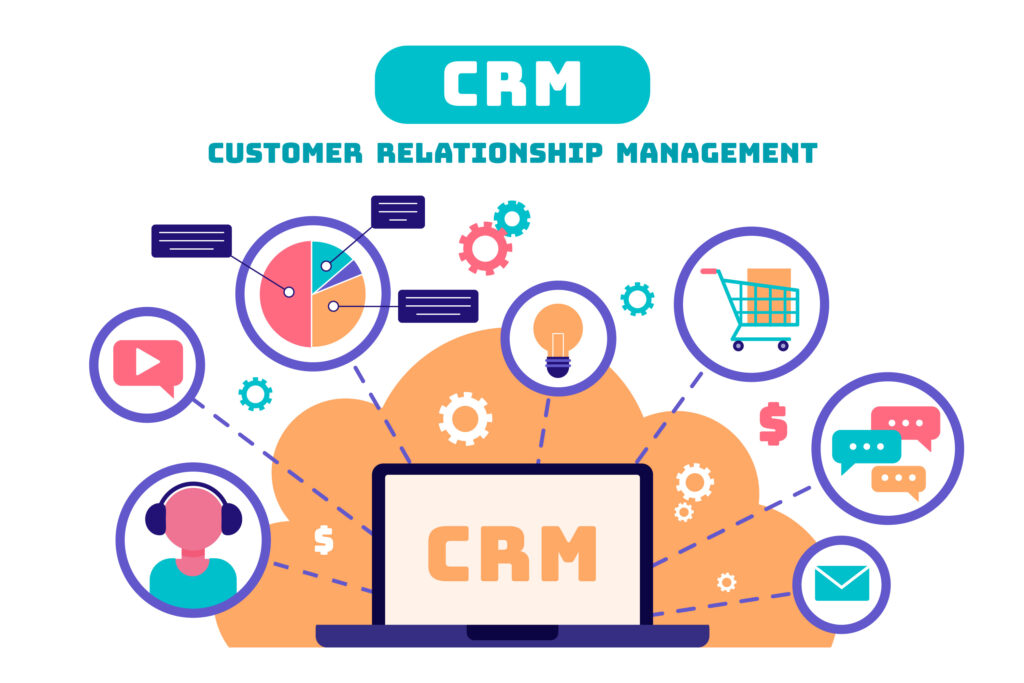
Analytics Tracking
Monitoring website traffic and user behavior provides valuable insights into how visitors interact with the site. Tracking metrics like page views, time spent on pages, and click-through rates help businesses understand their audience better. Analyzing conversion rates and bounce rates offers insights into the effectiveness of the website in converting visitors into customers or leads. Implementing SEO analytics helps businesses optimize their online presence continuously by identifying keywords that drive traffic and improving search engine rankings.
Enhancing Customer Service
Service Accessibility
Enhancing customer service on a business website involves various strategies to improve the overall user experience. One crucial aspect is providing customer support through live chat features. This allows customers to receive instant assistance, leading to higher satisfaction levels.
To further enhance service accessibility, businesses can create FAQs and resource pages. These self-service options empower customers to find answers independently, saving time for both parties. Enabling contact forms for inquiries and feedback ensures that customers can easily reach out with their queries or concerns.
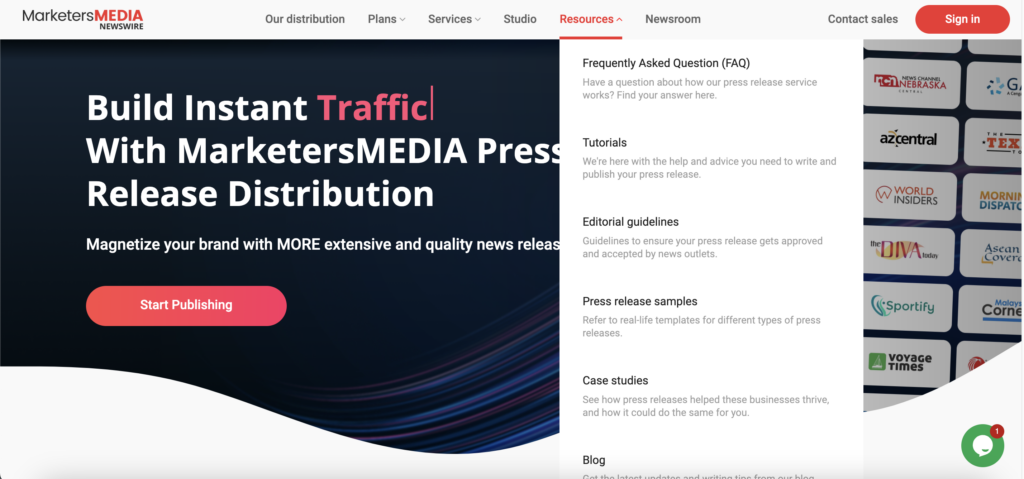
Feedback Loop
A vital component of enhancing customer service is establishing an effective feedback loop. Businesses can gather valuable insights by collecting customer testimonials, surveys, and reviews. Analyzing this feedback helps in understanding customer preferences and areas needing improvement.
Implementing feedback loops allows businesses to continuously evolve and tailor their services according to customer expectations. By addressing customer concerns promptly, companies demonstrate their commitment to customer satisfaction, fostering long-term relationships with clients.
Support Channels
Offering multiple support channels is essential for providing comprehensive assistance to customers. Businesses should ensure the availability of various communication options such as email, phone support, and live chat. Detailed FAQs and troubleshooting guides help customers troubleshoot common issues independently.
Timely responses play a crucial role in maintaining customer satisfaction levels. By promptly addressing queries and issues raised by customers, businesses showcase their dedication towards resolving problems efficiently. This proactive approach contributes significantly to customer retention rates.
Competitive Edge
Market Differentiation
Stand out from competitors by incorporating unique website features that set your business apart. Utilize innovative design elements and interactive tools to captivate visitors.
Highlighting unique selling propositions (USPs) on your website can effectively communicate why customers should choose your products or services over others. Emphasize what makes your brand special.
Personalizing the user experience based on targeted market segments can increase engagement and conversions. Tailor content, recommendations, and promotions to cater specifically to different customer groups.

Niche Targeting
Tailoring content to specific niche audiences helps in creating a more personalized experience for visitors interested in specialized products or services. This approach fosters stronger connections with potential customers.
Identifying niche keywords for targeted SEO strategies can improve search engine rankings and attract relevant traffic. By integrating these keywords naturally into website content, you enhance visibility among niche audiences.
Engaging with niche communities through forums, social media groups, or online platforms is crucial for building brand awareness within specialized markets. Interacting with these communities establishes credibility and trust among potential customers.
Innovation Showcase
Featuring innovative products or services prominently on the website demonstrates a commitment to staying ahead of industry trends. Highlighting cutting-edge offerings can attract tech-savvy consumers seeking the latest solutions.
Showcasing technological advancements within the industry not only positions your business as a thought leader but also instills confidence in potential customers regarding your expertise and capabilities.
Presenting case studies and success stories on the website serves as social proof of your company’s achievements. These real-life examples validate your claims of quality service and product excellence to prospective clients.
Growth and Expansion
Scaling Opportunities
Expanding business operations is crucial for growth. Implement scalable website solutions to accommodate increasing traffic and transactions. By doing so, businesses can handle more customers efficiently.
Reaching new markets is vital for expansion. An online presence allows businesses to tap into different demographics globally. Through strategic marketing efforts, companies can attract diverse customer bases.
Optimizing websites for growth involves continuous improvements. Regular updates and enhancements ensure that the site can handle increased traffic without compromising user experience. This scalability is essential for long-term success.
Market Reach
Increasing market reach is a key benefit of having a website. Online visibility enables businesses to connect with a broader audience beyond their physical location. This expanded reach opens up new opportunities for growth and revenue.

Targeting global audiences requires multilingual content on websites. By providing information in multiple languages, businesses can cater to international customers effectively. This approach enhances user experience and fosters trust with global consumers.
Utilizing SEO strategies boosts online visibility and improves search engine rankings. By optimizing website content with relevant keywords and quality backlinks, businesses can attract more organic traffic. This targeted approach helps increase brand awareness and drive sales.
Diverse Revenue Streams
Generating revenue through online advertising is a common practice among websites today. Display ads, sponsored content, or pay-per-click campaigns offer additional income streams for businesses looking to monetize their online presence.
Offering subscription services or premium content provides another avenue for generating revenue online. Exclusive access to specialized content or services entices users to subscribe, creating a recurring income stream for the business.
Monetizing website traffic through affiliate marketing is another effective strategy for diversifying revenue streams. By partnering with relevant brands or companies, websites can earn commissions on sales generated through referral links placed on their site.
Considerations Against Websites
Growth not a Goal
While websites offer a powerful platform for businesses, it’s important to consider the ongoing effort required to maintain their effectiveness and contribute to sustainable growth. Website ownership is not a one-time project; it necessitates consistent content updates, security measures, and performance optimization to ensure a positive user experience.
However, growth relies on more than just a website. A well-designed website is a crucial asset, but achieving sustainable growth requires a comprehensive approach. Customer retention strategies, effective marketing efforts, and a focus on product development are all essential elements that work alongside your website to drive long-term success.
Lead Surplus
Capturing leads requires strategic tactics beyond just having a website. Implementing lead magnets, such as free resources or discounts, can boost visitor engagement. Nurturing leads through targeted email campaigns helps in converting potential customers into loyal clients.

Stable Market Position
Maintaining a stable market position involves more than just an online presence. Consistent monitoring of market trends allows businesses to adapt their website strategies accordingly. This flexibility allows them to update content, product offerings, or marketing messages displayed on their website to better resonate with evolving customer needs and industry trends. Ultimately, a website serves as a dynamic platform for businesses to showcase their adaptability and maintain a competitive edge in the market.
Closing Thoughts
Websites play a significant role in enhancing a business’s online presence, professionalism, and customer service. They offer complete control over content and branding, giving businesses a competitive edge and facilitating growth and expansion. Despite some considerations against websites, their benefits far outweigh the drawbacks. To stay ahead in the digital age, having a well-designed website is essential for any business.
Incorporating a user-friendly website can significantly impact a business’s success. It is imperative to prioritize investing in a professional website to attract and retain customers effectively. By understanding the importance of websites in today’s business landscape, companies can harness their power to drive growth and achieve long-term success.
Related Article:
The following article may contain the author’s opinions and interpretations of the subject matter. Any of the products, services, or platforms mentioned is not sponsored or affiliated.
Featured Image courtesy of freepik
